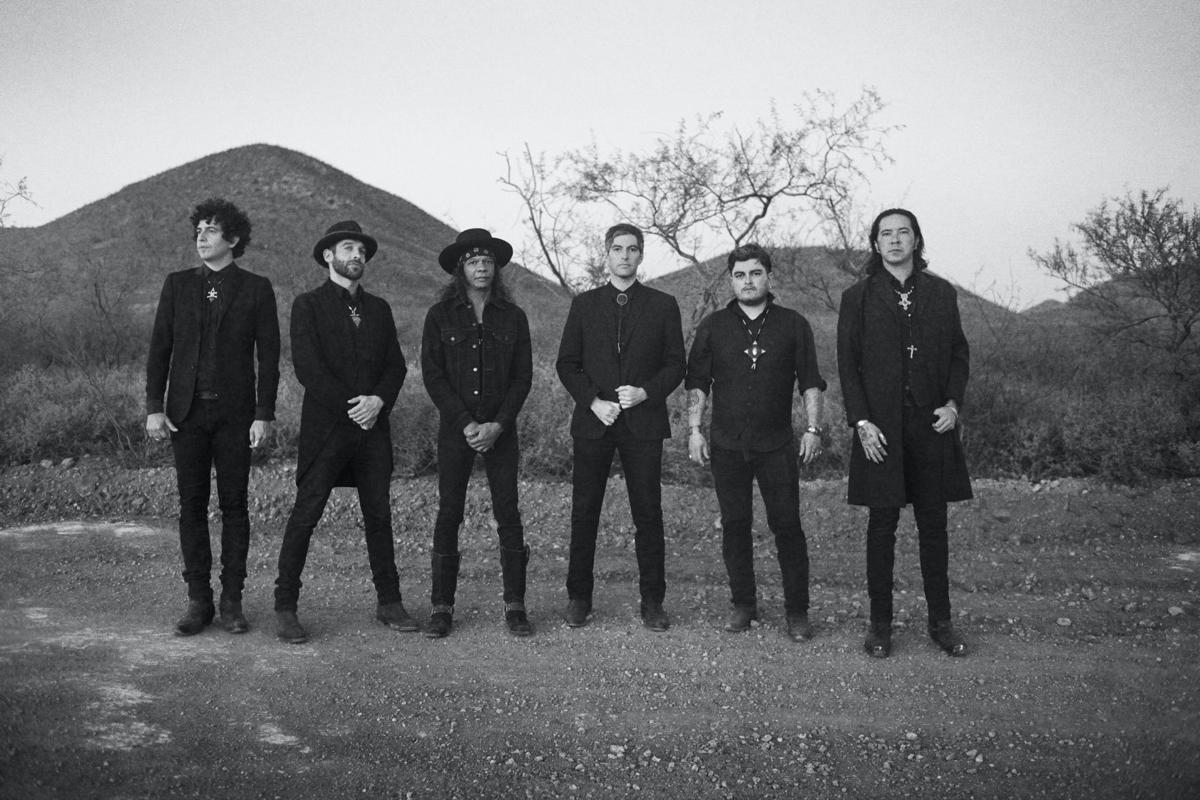COVID-19 was a mixed blessing for Tucson’s popular chicha rock band XIXA.
They had to put their highly anticipated sophomore album “Genesis” — a followup to their 2016 debut album “Bloodline” and 2019 EP “The Code” — on hold for a year along with a European album tour.
But the downtime opened a virtual door that exposed them to tens of thousands of fans around the world. Two weeks after the state’s pandemic shut-down, the band hosted a Facebook live concert that attracted nearly 10,000 viewers and thousands more who watched after it was posted to the band’s Facebook page.
Over the spring, XIXA played several virtual concerts including a festival in Peru.
“I think the biggest thing for XIXA that would have been an impossibility if not for this pandemic is that we played a live-streamed concert that was based in Peru, all based on chicha music and chicha culture,” said Gabriel Sullivan, who leads the band with Brian Lopez. “We got so many messages from Peru and Peruvian fans begging us to come out there. Up until now it hasn’t been possible, but now we got to, in a bizarre form, get in front of all of those fans.”
“I think, ironically, with COVID hitting when it did and us having to push back the release, it really bought us some time,” said Lopez.
In March, the band — which includes Jason Urman, Winston Watson, Caleb Michel and Hikit Corbel — signed with the indie New York boutique label Jullian Records, which came with a marketing team that helped the band “drop breadcrumbs for fans” — a yearlong singles release campaign to whet the appetite of fans for the album.
On Friday, Feb. 19, the band will finally release “Genesis.” Lopez said the timing, in hindsight, is perfect.
“This will be a good time for this record to take off because I think we can sustain this magic for quite a while now,” he said.
XIXA will perform an online concert with Bandsintown as part of the platform’s Live Discovery series.
“We’ve had these songs ready to go for a long time,” Sullivan said. “It’s pretty exciting to finally put music out in the world.”
Sullivan and Lopez co-wrote the album, with input from their bandmates. The process always starts with a chord, a harmony or chorus. From their downtown Dust & Stone Recording Studio, they sketched out the music first, then Sullivan and Lopez would bat lyrics back and forth until they found what the song was meant to say.
In some songs, like “Eve of Agnes,” the storytelling comes not from the lyrics but the music, Lopez said. The band invited the Algerian Tuareg desert rock quintet Imarhan, which was on tour in spring 2018 and staying with Lopez, to collaborate on the song.
“Those situations will always yield such very interesting and satisfying results,” said Lopez. “If you hear the verses in the choruses, there is that tag team of two cultures kind of taking on the song. It’s pretty cool.”
Sullivan said “Genesis” “is certainly one of the most collaborative Brian and I have been on any of the records writing together.”
“Sometimes Brian and I will come out with a more fleshed out song, but it’s just a collaborative process,” he explained. “Once those basic tracks are down, it’s Brian and I chopping away at it.”
Lopez and Sullivan said “Genesis” also has a more chicha vibe and sound, which after years of performing the Peruvian-style music has become almost second nature. But the album also mines the band’s Tucson desert rock ethos that borrows from psychedelic rock and the pair’s love of Italian Spaghetti Westerns. They looked to Tucson artist Daniel Martin Diaz, who designed their cover art, for inspiration on “Genesis of Gaea,” the single that inspired the album title.
Borrowing from Italian film composer Bruno Nicolai, the song has a fuzzed-out guitar melody that Sullivan said emulated the tone. Once they nailed the guitar part, the rest of the song came together.
“Soma” started life as a piano demo in Lopez’s phone.
“I just had the chorus melody and the really basic themes for the beginning of the song,” he recalled. “We worked out an arrangement together. We knew it was going to be a cumbia at some point. I remember one of those aha moments was when we changed the lead instrument from something a little more brash, like themes from narcocorridos. We made it a little more smooth; we rounded out the sound, and it was just like, ‘Oh that’s the sound.’ … We just switched it to two guitars, and it was more like oh that’s the song.”
Percussive thumps open “May They Call Us Home,” a song that starts off pure Spaghetti Western before segueing into an energetic Peruvian chicha with Spanish lyrics penned by Lopez.
“But of course we can’t do it correctly because we are not Peruvian,” Lopez joked.
Lopez and Sullivan share vocal duties, with Sullivan and his darkly hued, almost gothic bass taking lead on the haunting “Nights Plutonian Shore” and the pair dueting on “Feast of Ascension,” which has wonderfully crunchy electric guitar riffs that recall the days when music fans would put the needle on a vinyl album and listen cover to cover.
“I definitely think this is the most realized representation of what XIXA is and could be,” Sullivan said. “This is us settling into all the different styles of music that influences our band. Brian and I made the songs potent enough that they sound great acoustic. … I feel like this is the truest form of XIXA.”





